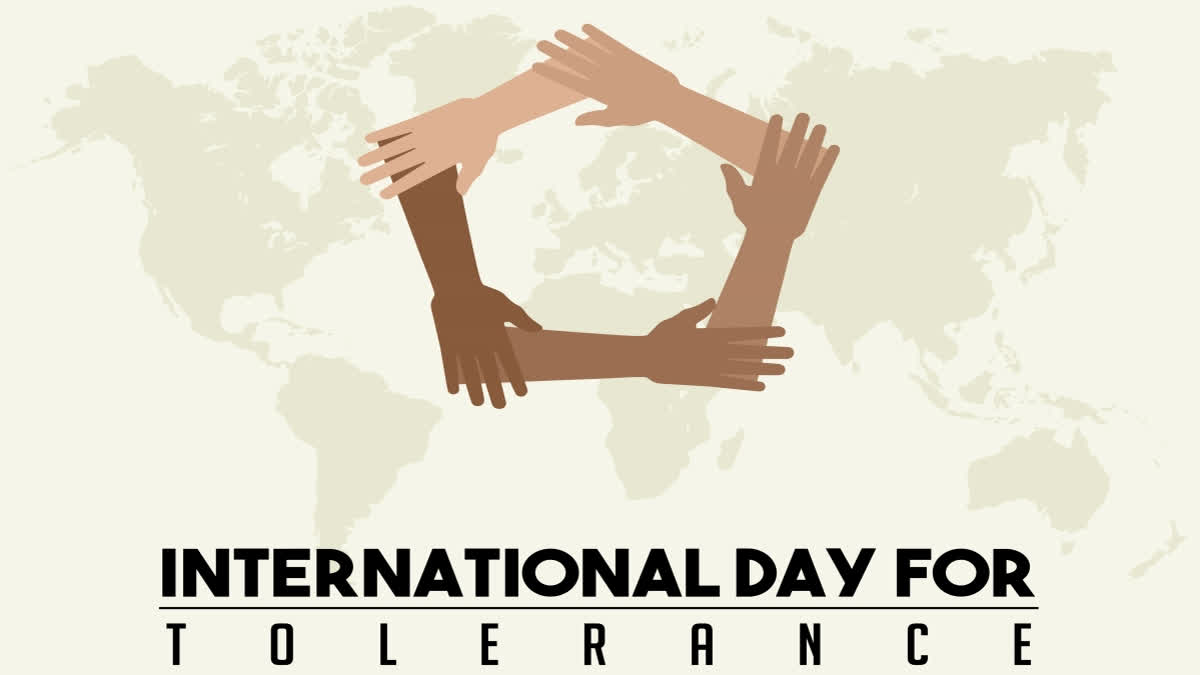Hyderabad: Every year on November 16, the International Day for Tolerance is observed to promote mutual understanding among various cultures and enhance tolerance among individuals.
The day aims to highlight how intolerance can harm our lives. United Nations Educational, Scientific and Cultural Organization (UNESCO) says that tolerance is key for mixed communities worldwide because people are different. In today's globalised world, where people from various backgrounds live together, tolerance and harmony are crucial. It creates a society where everyone is appreciated and respected.
Understanding Tolerance:
The word 'toleration' comes from Latin and means to put up with or accept something despite it being wrong or in some way unacceptable, but not to stop it from happening. Tolerance means understanding and respecting different people and their views, beliefs, and backgrounds.
It's about being fair and accepting, even when you disagree. On the other hand, intolerance is the opposite, where people don't respect or accept others' differences. For example, Israelis and Palestinians are very intolerant of each other's views, which leads to ongoing conflict.
The History of the International Day for Tolerance:
The International Day for Tolerance, first observed in 1996, is celebrated globally on November 16th, marking the day UNESCO presented the Declaration of Principles on Tolerance. This day emphasises the importance of respecting everyone's rights and celebrating diversity, aiming to promote peace and dialogue.
In 1994, UNESCO marked the 125th anniversary of Mahatma Gandhi's birth paving the way for the proclamation of 16 November as the International Day for Tolerance by the UN.
Its purpose is to encourage tolerance as a societal norm. Additionally, UNESCO awards the Madanjeet Singh Prize annually to individuals who have worked towards a more tolerant and peaceful world, recognising their achievements in various fields.
UNESCO-Madanjeet Singh Prize for the Promotion of Tolerance and Non-Violence:
In 1995, to celebrate the United Nations Year for Tolerance and Mahatma Gandhi's 125th birthday, UNESCO created the UNESCO-Madanjeet Singh Prize. This award honours outstanding projects in science, art, culture, or communication that promote tolerance and non-violence. It's based on UNESCO's Constitution, which says that lasting peace needs the unity of people's thoughts and morals.
The primary objectives of International Day for Tolerance:
- Raising understanding of tolerance and how it helps create peaceful and welcoming communities
- Supporting a willingness to be open, understanding, and kind to everyone, no matter their background or culture
- Teaching people about the risks of being intolerant, unfair, and biased
- Stating the importance of human rights and treating everyone equally
A Push for Transformation:
The International Day for Tolerance started many years ago, has helped spread the message of tolerance and fight against intolerance all over the world. It has led to programs in schools, discussions in communities, and efforts to support human rights and equality.
Additionally, the day has encouraged countries to work together to tackle issues of intolerance and discrimination on a global scale.
Significance Of The Day:
- Encouraging Tolerance and Respect for Differences.
- Fighting Against Intolerance and Bias.
- Developing Harmonious and Equitable Communities.
- Motivating Future Generation.
- Protecting Human Rights
- Boosting International Collaboration.
- Developing a World that Welcomes Everyone.



